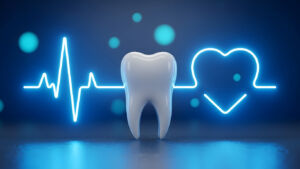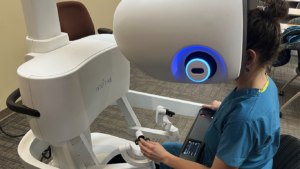Shiga-toxin-producing E. coli outbreaks have happened all over the U.S. In the City of Houston, E. coli cases have gradually increased, starting with 351 cases in 2010 and escalating to 1,324 cases in 2019.
In February 2024, another major E. coli outbreak affected at least five states, including Texas. While most historic outbreaks were dueto frozen foods and prepackaged cookie dough, the latest outbreak was linked to raw cheddar cheese.
In light of ongoing E. coli risks and outbreaks, knowing how to protect yourself and your family against an E. coli infection is crucial.
What Is E. coli and How Does It Spread?
E. coli, which stands for Escherichia coli, is a bacterium found in the intestines of both animals and humans. Many strains of E. coli will never cause harm, and some will even benefit the intestines by promoting digestion.
Unfortunately, some E. coli strains can cause food poisoning and serious illness. A particularly dangerous type is the Shiga-toxin-producing E. coli (STEC). This includes the E. coli 0157:H7 strain, which produces toxins that damage the intestinal lining, leading to severe symptoms and illness.
E. coli mainly spreads via a fecal-oral transmission process. This means that E. coli bacteria pass from feces to the mouth. This unpleasant process happens in several ways, causing unseen bacteria to enter the mouth and end up in the digestive tract.
For example, E. coli from cattle intestines can result in contaminated raw or undercooked ground beef. Eating unwashed, raw fruit and vegetables can also cause you to contract an E. coli infection. These foods often become contaminated by dirty water and soil or during handling.
Unpasteurized dairy products, including raw milk and cheese, can also harbor E. coli.
E. coli infections do not always occur through food consumption. Swimming in or drinking contaminated water can lead to a serious infection. The risk is higher in areas with poor sanitation or after heavy rainfall that leads to flooding.
Moreover, if proper hygiene is not followed, you can contract an E. coli infection through close contact with another person. This is often the reason for severe outbreaks in childcare centers and healthcare facilities.
Preventing an E. coli Infection
When it comes to E. coli infections, prevention is always better than cure. Instead of going through the symptoms and getting medical treatment that may or may not help,
Implementing strict food safety measures in your home is the most important thing to do. Only buy ground beef from reputable retailers or butchers. When cooking the beef, ensure it reaches an internal temperature of 160°F.
Always use separate boards when cutting raw meat and vegetables. Wash your hands and utensils, and disinfect all kitchen surfaces thoroughly after handling raw meat.
If you and your family consume a lot of raw fruits and vegetables, always wash them thoroughly, even if you end up peeling them. Even if you buy pre-washed produce, you should still rinse it before eating it. Always avoid eating raw sprouts.
If you consume a lot of dairy and dairy-based fruit juices, only buy pasteurized products. There is a high risk of contracting E. coli infections from unpasteurized products.
If the water in your area is easily contaminated, bottled or boiled water should be the first choice for your family. You should always boil tap water if your neighborhood has a boil water advisory.
Do not swim or allow your family to swim in polluted water. Even if the water seems clean, always shower immediately after swimming. Never swallow water while swimming.
Personal Hygiene Is Crucial
Do not neglect handwashing (with soap and water) each time you use the bathroom. Always wash your hands after playing with pets or changing diapers.
It is also crucial to clean your hands before and after working with food. Avoid touching your face, nose, or mouth while you prepare food.
Alcohol-based hand sanitizer is a good backup option if soap and water are unavailable.
If your family enjoys camping and hiking, you should also practice proper food storage and preparation outside the open. Ensure everyone washes their hands regularly, and do not allow any of your family members to drink untreated water.
Supervising children ensures they wash their hands and follow good hygiene rules. Older adults should be assisted if they want to prepare food themselves.
What to Do If You Contract an E. coli Infection
Unfortunately, there is no guarantee that you will never contract an E. coli infection. If you experience symptoms of an infection, it is critical to seek immediate medical attention. Doing this may help you recover faster and limit the spread of the infection to other family members.
Symptoms of an E. coli infection include:
– Watery or bloody diarrhea
– Nausea or vomiting
– Fatigue
– Abdominal pain
– Fever
You should never ignore these symptoms because an untreated E. coli infection may result in complications such as hemolytic uremic syndrome. This conditionaffects thered blood cells and kidneys. In severe cases, HUS can result in kidney failure.
Treatingan E. coli infection includes supportive care that helps your body recover. You must drink plenty of clean water to prevent dehydration, especially if you experience diarrhea and vomiting.
Getting enough rest will allow your body to heal faster. In some cases, a doctor might prescribe antibiotics. However, they are usually not indicated because they may worsen an E. coli infection.
What Happens If Your E. coli Infection Is Due to a Third Party?
You can take legal action if you believe you contracted an E. coli infection caused by a third party, such as a grocery store or restaurant.
Report the incident to your local health department and inform the relevant third party.
If you accumulate medical bills and lose income because of infection, contact a lawyer to help you file an E. coli lawsuit. Your lawyer will gather the necessary information and evidence to build your case. They will also communicate and negotiate with the third-party insurance provider.
Recovering From an E. coli Infection
Allow your lawyer to handle your case while you recover from your infection. Becoming too stressed or worried about the case can lead to a longer illness. Fortunately, being prepared and diligent can protect yourself and your family from E. coli infections. When they do happen, a lawyer can help you recover the losses you




